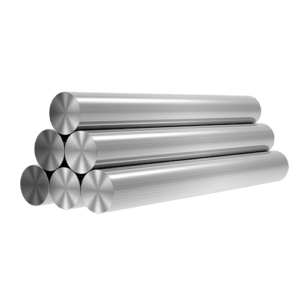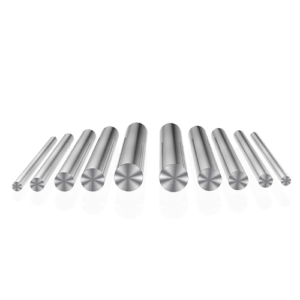Welcome to My Blog!
Before we dive into the content, I’d love for you to join me on my social media platforms where I share more insights, engage with the community, and post updates. Here’s how you can connect with me:
Facebook:https://www.facebook.com/profile.php?id=100090063158454
Now, let’s get started on our journey together. I hope you find the content here insightful, engaging, and valuable.
Introduction

Choosing the right material for industrial applications in harsh environments can significantly impact performance and longevity. Among the various stainless steels available, Qilu Stainless Steel 303 stands out due to its unique properties tailored for demanding conditions. This blog will explore the advantages of Qilu Stainless Steel 303, highlighting its features, benefits, and applications in environments where durability and resistance are crucial.
What Is Qilu Stainless Steel 303?
Composition and Characteristics
Qilu Stainless Steel 303 is a type of austenitic stainless steel known for its excellent machinability and good corrosion resistance. It is composed of:
- Chromium (Cr): 17-19%
- Nickel (Ni): 8-10%
- Sulfur (S): 0.15-0.35%
- Carbon (C): Up to 0.15%
- Manganese (Mn): 2-3%
- Silicon (Si): Up to 1%
The sulfur content in this alloy enhances its machinability, making it easier to cut and shape compared to other grades of stainless steel.
Benefits of Qilu Stainless Steel 303
Enhanced Machinability
One of the key benefits of Qilu 303 stainless steel is its exceptional machinability. The higher sulfur content improves the material’s performance in machining operations, allowing for complex and precise components. This is particularly advantageous in industries where detailed machining is essential, such as aerospace and automotive.
Corrosion Resistance
In harsh environments where exposure to moisture and chemicals is common, the corrosion resistance of Qilu Stainless Steel 303 is crucial. Its high chromium and nickel content provide a robust defense against rust and oxidation, ensuring long-term durability and reliability of components.
Strength and Durability
Qilu 303 stainless steel offers high tensile strength and durability, making it suitable for applications subject to mechanical stress. The material’s strength helps maintain component integrity under harsh conditions, reducing the likelihood of failure or deformation.
Dimensional Stability
Dimensional stability is another significant advantage. The material maintains its shape and size even under extreme environmental conditions, minimizing the risk of distortion. This property is vital for precision components where exact dimensions are required.
Applications in Harsh Environments
Aerospace Industry
In aerospace applications, components must endure high stresses and corrosive conditions. Qilu 303 stainless steel is used for parts like fasteners and fittings due to its machinability and resistance to harsh conditions. The material’s properties ensure reliability and performance in critical aerospace systems.
Chemical Processing
The chemical processing industry involves handling corrosive substances, where Qilu Stainless Steel 303 proves valuable. Its resistance to chemicals and oxidation makes it suitable for equipment such as pumps and valves, which must withstand harsh chemical environments without degrading.
Marine Environments
Marine environments are particularly challenging due to the presence of saltwater and high humidity. Components made from Qilu 303 stainless steel, such as boat fittings and marine hardware, benefit from its corrosion resistance, ensuring longevity and functionality even in demanding conditions.
Key Properties of Qilu Stainless Steel 303
| Property | Value |
|---|---|
| Chemical Composition | Cr: 17-19%, Ni: 8-10%, S: 0.15-0.35%, C: up to 0.15%, Mn: 2-3%, Si: up to 1% |
| Tensile Strength | Approximately 560 MPa |
| Yield Strength | Approximately 275 MPa |
| Elongation | 40% |
| Hardness | 92 HRB |
| Density | 8.03 g/cm³ |
| Melting Point | 1400-1450°C |
Comparing Qilu Stainless Steel 303 to Other Stainless Steels

Qilu Stainless Steel 303 vs. 304
While both Qilu 303 stainless steel and 304 offer good corrosion resistance, the former excels in machinability due to its higher sulfur content. This makes 303 a preferred choice for applications requiring intricate machining, whereas 304 is often chosen for general-purpose use where machinability is less critical.
Qilu Stainless Steel 303 vs. Carbon Steel
Carbon steel is typically more cost-effective but lacks the corrosion resistance of Qilu Stainless Steel 303. For environments with high exposure to moisture or chemicals, Qilu 303 stainless steel provides superior performance and longevity, making it a better option despite the higher cost.
Conclusion
Qilu Stainless Steel 303 offers a range of advantages for applications in harsh environments. Its machinability, corrosion resistance, strength, and dimensional stability make it a versatile and reliable choice for various industrial uses. Whether in aerospace, chemical processing, or marine applications, this stainless steel grade provides the durability and performance needed to withstand demanding conditions.
By selecting Qilu 303 stainless steel, industries can achieve enhanced efficiency, reduced maintenance costs, and improved component lifespan. Its unique properties make it a valuable material for applications where other materials might fall short.
FAQ
What makes Qilu Stainless Steel 303 unique?
Qilu Stainless Steel 303 is distinguished by its high sulfur content, which enhances machinability. This makes it easier to work with compared to other stainless steels. While it provides good corrosion resistance, its machinability is its standout feature.
Can Qilu 303 stainless steel handle extreme temperatures?
While Qilu 303 stainless steel is versatile, it may not be ideal for extremely high-temperature applications. For temperatures exceeding 800°C, other heat-resistant alloys might be more suitable.
Is Qilu Stainless Steel 303 appropriate for food processing?
Qilu Stainless Steel 303, with its higher sulfur content, might not be the best choice for food processing applications where hygiene is critical. Stainless steels like 304 or 316 are often preferred for their better suitability in food-grade environments.
How does Qilu Stainless Steel 303 perform in welding?
Qilu Stainless Steel 303 is not ideal for welding due to its sulfur content, which can affect weld quality. For welding applications, stainless steels with lower sulfur content, such as 304 or 316, are generally recommended.
What are the environmental impacts of using Qilu Stainless Steel 303?
Qilu Stainless Steel 303 is recyclable and contributes to sustainable practices in manufacturing. However, its production process is energy-intensive. Considering its durability and recyclability can help in assessing its overall environmental impact.
